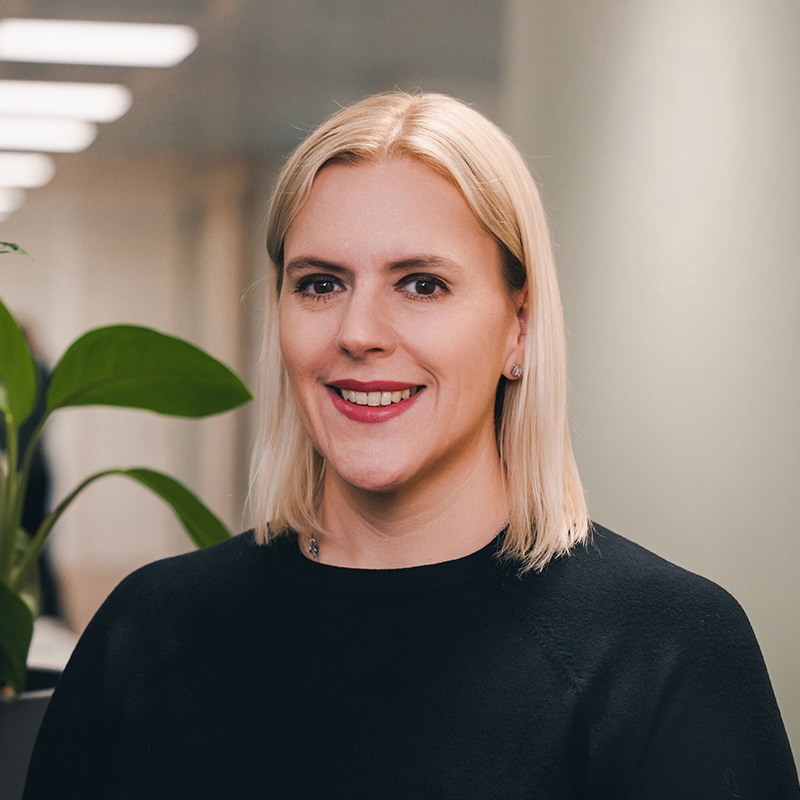Careers aren’t always linear. Whatever name you give it – career break, sabbatical – time deliberately taken out of the workforce during the course of your career is not taboo. You might take time for personal reasons, like having children, or even professional ones if you’re thinking of making a change.
But what is it like to take time out and then pursue career re-entry? Jenny Gardiner, one of the consultants in BIE’s HR team, spoke with HR professional Emma Codd about her recent experiences of returning to work. Jenny helped place Emma in her new role as an HR Business Partner at Amnesty International.
Tell us a bit about your choice to take a career break.
At the time I took the break, I had 15 years of experience in a number of different HR roles, mainly in the HR business partnering field. It was a mixture of permanent and interim roles – some fixed contracts, some through my own consultancy. And then, in late 2014, I decided to take a chunk of time off to have my children.
The original plan was to take around five years or so, but the pandemic stretched that out a bit! As it turned out, I ended up going back to work seven years later, almost to the day. While it was longer than I planned, it worked out really nicely because both of my children were established in school by that point.
How did you kick-start the job-hunting process?
I started by reaching out to my network via LinkedIn. It’s a great tool, and one which I actually kept using during my time off. I wasn’t actively contributing, but it kept me connected and I still felt part of the community. At the time, I sent out some messages, essentially telling people I was coming back and asking them to let me know of any opportunities. And I actually got two sets of interviews off the back of that process. They didn’t ultimately come to anything, but it quickly got me back into the swing of things in terms of interviewing.
My network was a really useful tool. After about six months though, things went quiet and I realised I had exhausted my network’s possibilities. I’d been talking with recruiters during that time as well. I particularly wanted to reestablish the relationships with agents I’d worked with in the past; people who knew who I was and what I could do. Understandably, some had left their roles, so I ended up working with a few new agents at familiar agencies. Where I had most success though was through people who had placed me in roles before, or who’d had contact with me before.
Right from the start, I thought that that would be the way I’d find a new position – that someone who knew me and what I could do would help me get over the hurdle of the career break.
So did the career break stand in your way?
Sometimes it was hard to tell. After all, I was job hunting during an exceptionally weird time. It was a pandemic and I think, to some extent, the normal rules just didn’t apply. One thing I did notice was how particular the employers were – it was a candidate-rich, extremely competitive environment at the time, so they could be really choosy.
I didn’t think my break would be too much of an issue. Yes, it was seven years, but my skills and experience didn’t disappear. In fact, I think I was going to be an even better worker this time around. The thing about having kids is that you just don’t sweat the little things! I think I was more patient and calm. And my ability to tackle a problem in a more balanced way was greatly enhanced. I had a lot of skills I could harness now that I didn’t have previously. I hadn’t lost anything – I’d gained a lot – but I couldn’t get in front of anyone to let them know that. I think some people saw that seven-year break at the top of my CV and made assumptions. I knew I wouldn’t walk back into a job, but I thought there would be more interest in my CV than I was experiencing.
Did the recruiters help you?
Yes and no. Some of the recruiters suggested that I lower my expectations. You see, I was hoping to get a job with a similar level and salary as I’d had before the break. They told me that it would be too hard to achieve. They recommended that I drop down a level or a salary bracket. Essentially, they wanted me to take anything that came my way just to get my foot in the door.
I felt uncomfortable with that. Of course I wanted to restart my career and get going, but that route felt like dismissing my belief in my own skills and experiences. And that didn’t sit right with me. It didn’t feel like good advice.
I feel like some of those agencies should have been acting on my behalf – advocating for me and for what I could do – but I didn’t have that kind of support. It felt like I was being fobbed off. The market was competitive so they didn’t really have to work hard to get the work done. There was no value in taking the extra effort to sell me. I mean, I get it, but I do wonder how different it would have been in a normal recruitment year though, whether or not they would have taken more of a punt on me. I don’t know. Then again, if they weren’t willing to invest in me, were they really the type of agency I wanted to work with?
On the flipside, there were some standout recruiters and agencies, like you and BIE, that were completely on my side, and the experience was totally different. They knew me as an individual and knew my skills and experience were strong. Many worked really hard to help me find the right role. And you actually did!
My experience was that there were those who wanted to help me, like you, and those that didn’t. And, unsurprisingly, I didn’t really hear much from those that didn’t! It felt like, once they’d seen my CV, they decided I wasn’t worth investing in. When I asked about roles they had, they’d ghost me or just message back saying it wouldn’t be the right fit. I quickly learned which were the agencies that I needed to keep speaking with, and which were the ones that weren’t worth investing my time in.
There was one recruitment agent that actually told me that I was going to really struggle to convince people to look beyond the career break. It’s not right that that would be the case – but it did indeed feel like a struggle sometimes to convince people to even see me.
So was it a hard process?
I started out with what I felt was a realistic idea of what was going to happen. It would be a bit tough, but I’d ultimately find a role that was right for me. And then, well, the attitudes from some recruiters, the dismissal of my CV, the quiet periods where nothing really happened… There were times I lost faith and felt despondent.
As an HR professional, I’ve got to say that I had hoped for better. Fair or not, it feels like HR should be an example of good hiring practices. And that taking time off to care for your children shouldn’t be a barrier. It really surprised me that in 2021 I was still having to try and explain my choices, my value, my worth.
All told, it took around 10 months to secure a new position. It all worked out in the end, and I am now in a truly fantastic position. So looking back, as an experience, I’d say it was interesting, rather than hard! Having been through all of that though, I hope I’ve learned from it. I hope that I take all those experiences and use them to make things better in the places I go next. I hope, if a CV similar to mine comes across my desk, that I have the same attitude as my current employer – that the time off doesn’t matter. That it’s just the person that matters.
Do you have any advice for someone looking to get back into work after a career break?
Hold your nerve! I know it’s hard, but don’t lose faith in yourself or lose confidence in your abilities. Trust that something will come. And if you are in a position to, try not to settle or compromise yourself in order to get your foot in the door. No matter what some people might say! You shouldn’t have to lower your values because someone says that you need to go back to go forward. And on that note, find recruiters, like I did with BIE, who believe in you and what you can do. It’s invaluable.
Similarly, keep close to your network and all the people who’ve worked with you before. They know first-hand how good you are. Your network is such a powerful tool. And it could be just the thing to leverage you back into the workforce.




